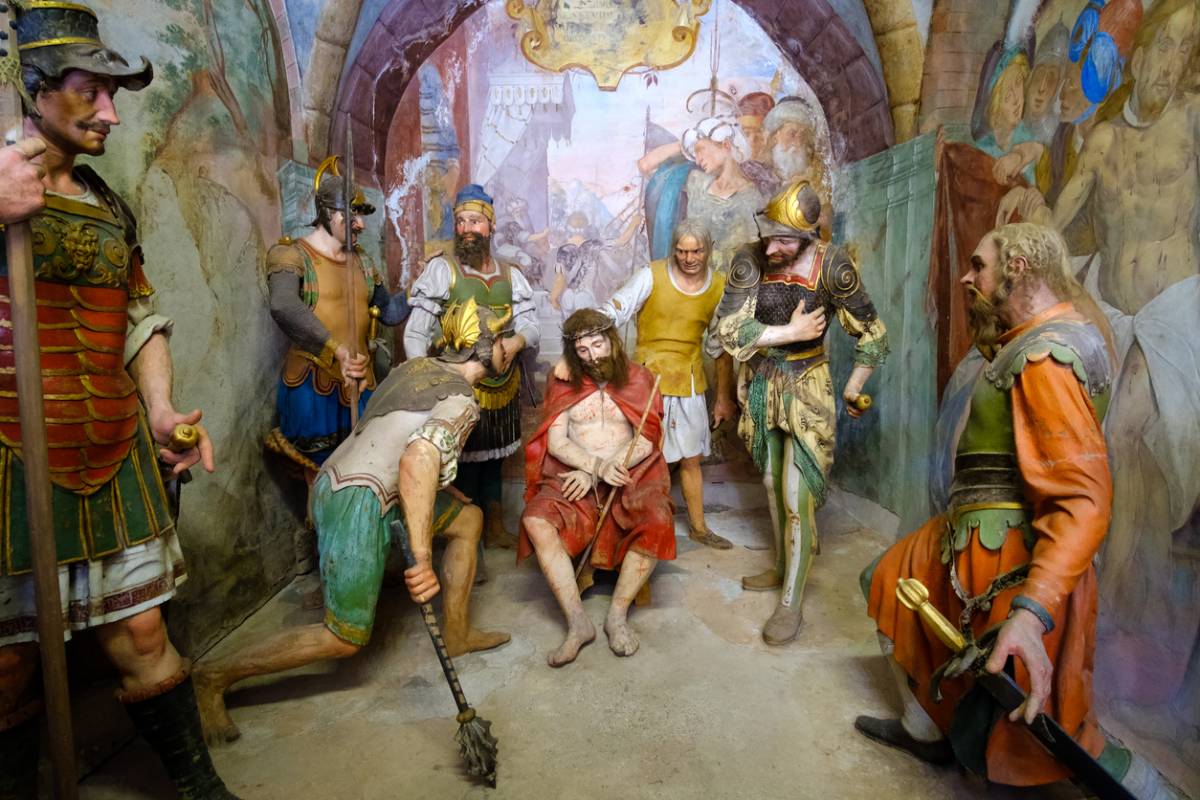It Is Finished
“After this, Jesus, knowing that all things were now accomplished, that the Scripture might be fulfilled, said ‘I thirst. Now a vessel full of sour wine was sitting there; and they filled a sponge with sour wine and put it to his mouth. So when Jesus had received the sour wine, He said, ‘IT IS FINISHED!’ And bowing His head, He gave up His spirit” (Jn 19:28-30).

“It is finished.” Just three words. The message seems simple and clear enough, but there is a depth here in these words that goes far beyond what seems a simple declaration. It is a final statement like no other. First, we recognize that this phrasing is an English language translation from the Greek. The word that is used in the Greek is the verb, tetelestai. To get to a deeper understanding of Jesus’ last word, let’s look at how this word was used in Jesus’ time.
The Greek root of the verb tetelestai is, ‘telew’, which means to finish, to bring to an end, or to complete. Grammatically speaking, when the verb is used in this form ‘tetelestai’, it is being used in the ‘perfect tense’. When this tense for the verb is used it is to indicate that something has been completed in the past but continues into the present. This form of the verb tetelestai was commonly used in three different contexts in Jesus’ time: in business transactions, in the courts, and the military. In each case it had a similar intent but each had a subtle variance of meaning.

In the business sense, this word was used to indicate that a debt had been paid off in full. In the judicial sense, the word was used to bring judicial proceedings in courts of law to an end. When a person had fulfilled a sentence or punishment applied against him by the courts, the word tetelestai, implied that the sentence had been served, or completed. In the military sense, this verb, tetelestai, is used in the context of announcing that a battle or a war had been completed, or won.
Each of these layers of meaning are clearly implied and included in Jesus’ final word to us from the cross before he gave up his spirit and died. Jesus was and is the Messiah promised to humankind by the Father since the fall of Adam. Jesus is the One who had been prophesied throughout the Hebrew Testament, who took on human flesh, coming into the world to accomplish the work of our salvation, once and for all. After he had suffered the unspeakable pains of scourging; after he had been mocked for hours and had a crown of thorns pushed into his scalp by brutish Roman soldiers; after being forced to carry his own instrument of death on his shoulder up the hill of Calvary, and after being nailed to the cross hand and foot, suffering the pains of death suspended there on the cross for three hours, Jesus said, Tetelestai!, “It is finished!”

That word expressed the end of His ancient mission, it had been completed. The debt that all of humanity, that is, all of us, owes to God for our sins, that we can not pay for in any way on our own, Jesus paid off in full through His sacrifice of pure love on that cross. It was finished. With Jesus’ death, God’s terrible and just sentence for the sins of all mankind, from Adam to this present moment and to the end of time, had been served. It was finished. With Jesus’ death on the cross, the great and final battle in the war against Satan, sin, and death had been won. It was finished.

It is for all of this that we have every reason to shout for joy and to lift up our hands with prayers of gratitude. With all humility, we willingly bow at the name of Jesus, and, “confess with our tongues that Jesus Christ is Lord, to the glory of God the Father” (Phil. 2:10-11). Amen.






